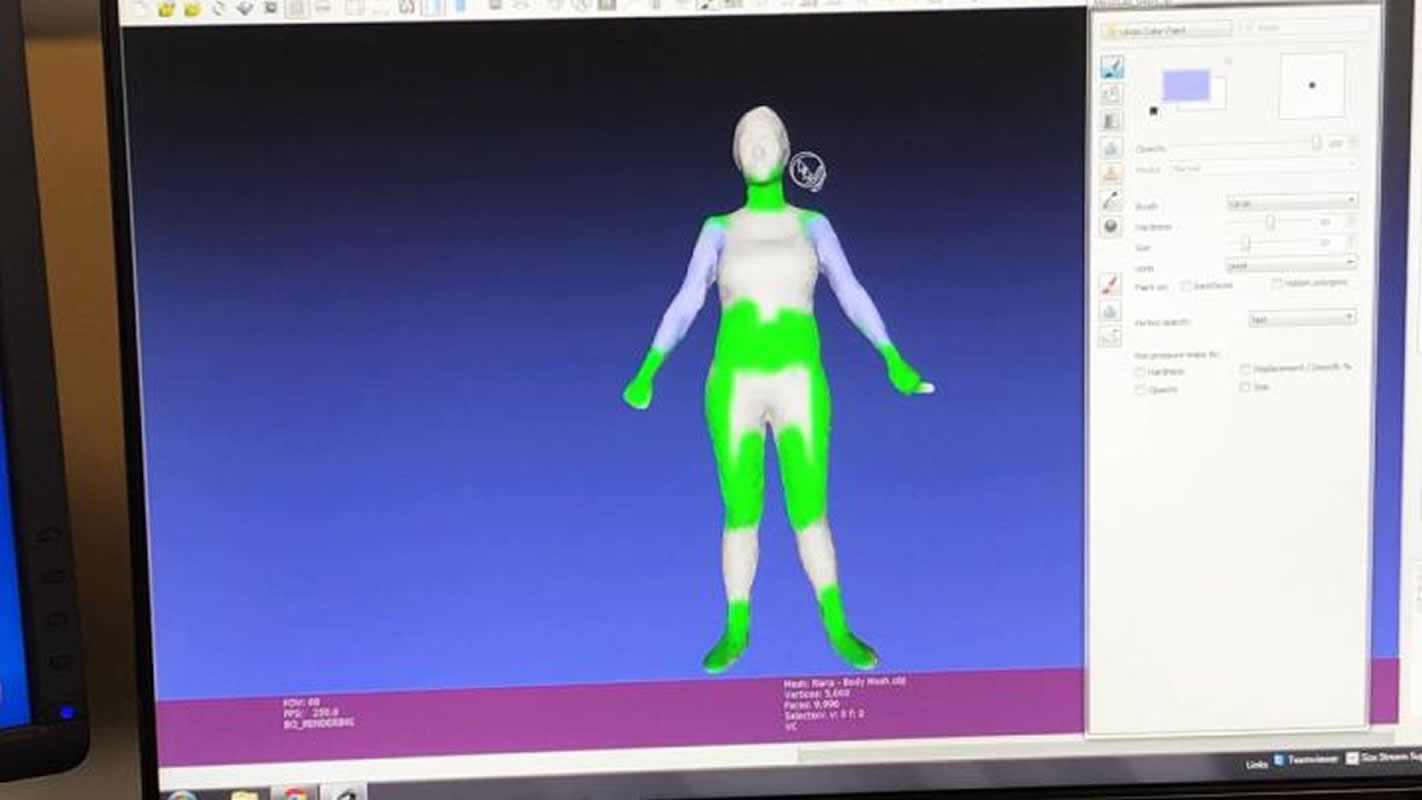Summary: Images from 3D scanners can be used to help improve focus on body appreciation, which may help to improve mental health outcomes for young people.
Source: University of Missouri Columbia
3D technology has transformed movies and medical imaging, and now it might be able to help young women better appreciate their bodies.
Virginia Ramseyer Winter, assistant professor in the School of Social Work and director of the MU Center for Body Image Research and Policy, is a nationally recognized body image expert. In a new study, she found that images from 3D scanners can be used to help young women focus on body appreciation, which might in turn improve mental health.
“3D body image scanning is a relatively new tool in social science research, and the research on using 3D tools for improving body image is scant,” Ramseyer Winter said. “We wanted to see if it could provide a way to help young women shift their focus away from appearance and toward function.”
In her study, young adult women between the ages of 18 and 25 were scanned in a 3D scanner used by researchers and students in MU’s Department of Textile and Apparel Management. The researchers used modeling software to convert the scans to 3D avatars. Participants then digitally “painted” body parts that they appreciated for various reasons such as their utility or role in their relationships.
“In digitally painting their avatars, women could think about how, for example, their thighs help them run or how their arms can help hold others in an embrace,” Ramseyer Winter said. “It provided the participants a way to visual their bodies in a completely different way. It allowed the participants to recognize how our bodies are much more than a size or a number on a scale.”
Immediately and then again three months after digitally painting their avatars, participants reported increased body appreciation over time. Moreover, participants reported lower depressive and anxiety symptoms.

“While more research still needs to be done on the relationship between the 3D image intervention we used and its impact on mental health, we did see a significant effect on body appreciation,” Ramseyer Winter said. “Prior research has shown that body appreciation is related to depression and anxiety, which leads us to think that we are on the right track in creating an intervention that can improve not only body image, but mental health as well.”
Future research will look at how painting the 3D avatars impacts young women with more severe depression.
Antoinette Landor, co-director of the Center for Body Image Research and Policy, co-authored the study. Other MU researchers who worked on the project were Michelle Teti, Kristen Morris, Erin Schliep, Danielle Pevehouse-Pfeiffer and Emily Pekarek.
The study is part of the newly created Center for Body Image Research and Policy, an interdisciplinary research center housed in the MU College of Human Environmental Sciences. The center was built around the goal to improve body image, health and wellness for individuals, families and communities.
Source:
University of Missouri Columbia
Media Contacts:
Sheena Rice – University of Missouri Columbia
Image Source:
The image is credited to MU News Bureau.
Original Research: Open access
“Is body appreciation a mechanism of depression and anxiety? An investigation of the 3-Dimensional Body Appreciation Mapping (3D-BAM) intervention”. Virginia Ramseyer Winter et al.
Mental Health and Prevention. doi:10.1016/j.mph.2019.200158
Abstract
Is body appreciation a mechanism of depression and anxiety? An investigation of the 3-Dimensional Body Appreciation Mapping (3D-BAM) intervention
Body appreciation is related to numerous mental health outcomes, including depression and anxiety. This pilot study investigated the effects of an intervention, 3-Dimensional Body Appreciation Mapping (3D-BAM), developed to improve body image, depression, and anxiety by using 3D scanning technology to train participants to focus on ways they appreciate their bodies. Eighty-nine emerging adult women (Mage = 20.64) participated in the intervention and completed body image and mental health measures at baseline, pre/post-intervention, and 3-month follow up. For the intervention, participants digitally “painted” body parts of their personalized 3D avatar that they believed lived up to the cultural image of women, and that they appreciated for their appearance, utility, and role in interpersonal relationships. Following the intervention, participants reported increased body appreciation over time. Depression and anxiety decreased, but the reduction cannot be attributed to the intervention. However, body appreciation had a significant negative effect on depression and anxiety. These preliminary findings illustrate how utilizing 3D scanning technology to focus on body appreciation can improve body image among emerging adult women and reduce pathology.






